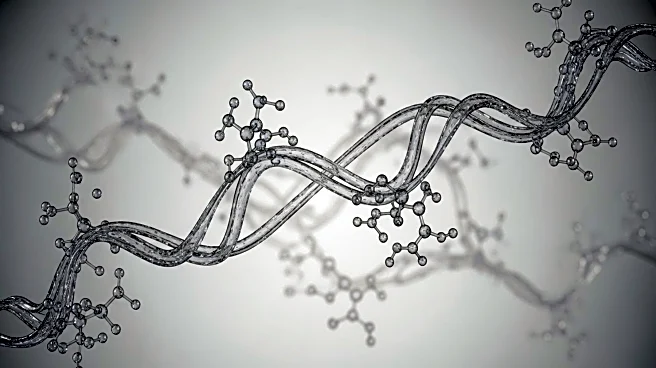What is the story about?
What's Happening?
Research published in Nature highlights the impact of TGF-β1 pathway activation on bone marrow endothelial cells (BM ECs), impairing their ability to support hematopoiesis. The study found that TGF-β1 treatment damages BM ECs, inhibiting cell migration and tube formation, which are crucial for hematopoietic support. Silencing TGF-β1 receptors in BM ECs restored their function, suggesting potential therapeutic strategies for endothelial cell protection and hematopoietic regeneration. The findings underscore the pathway's role in maladaptive repair processes, affecting hematopoietic recovery.
Why It's Important?
Understanding the TGF-β1 pathway's role in hematopoietic impairment could lead to new treatments for conditions involving bone marrow dysfunction. This research offers insights into the molecular mechanisms affecting hematopoiesis, potentially guiding therapeutic interventions for diseases like myelodysplasia and other hematological disorders. The study's implications extend to regenerative medicine, where targeting the TGF-β1 pathway could enhance recovery and improve patient outcomes.
What's Next?
Further research is needed to explore the therapeutic potential of TGF-β1 pathway inhibition in clinical settings. The study suggests that targeting this pathway could restore BM EC function and accelerate hematopoietic recovery, offering hope for patients with compromised bone marrow function. Clinical trials may be initiated to test the efficacy of TGF-β1 inhibitors in improving hematopoietic support and regeneration.
Beyond the Headlines
The ethical considerations of manipulating biological pathways for therapeutic purposes are significant, particularly in regenerative medicine. This research highlights the importance of balancing innovation with safety and efficacy, ensuring that new treatments are both effective and ethically sound. Long-term, advancements in understanding the TGF-β1 pathway could lead to broader applications in tissue engineering and regenerative therapies.

















